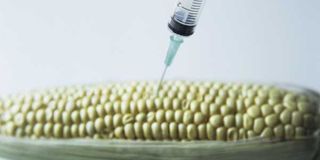Breaking News: Former Lugari MP Cyrus Jirongo dies in a road crash
Premium
High Court stops importation of GMO into the country

In agriculture, genetic engineering has produced crops that are fast-maturing, resistant to drought, high-yielding and hardy towards pests and diseases.
The High Court has temporarily suspended government's decision to allow importation and distribution of Genetically Modified Genetically crops, commonly known as GMOs, in the country pending determination of a second lawsuit lodged against lifting of the ban.
Judge Mugure Thande also temporarily barred importation of GMO products, foods and materials by government or any person either directly or indirectly.
The lawsuit, which is the second one to be lodged against President William Ruto's administration for allowing the consumption of GMO products in Kenya, was filed by Kenyan Peasants League -a lobby group representing peasant farmers.
The group claims that the decision of President William Ruto-led administration to lift the ban and remove regulatory protocols imposed in 2012 is unprocedural and unlawful.
The group alleges that GMO products pose a health risk to Kenyans, particularly the poor and those with low incomes.
It also alleges that the government lifted the ban without involving Kenyans through the public participation rule, as required by the Constitution. They are opposed the importation, cultivation, and consumption of GMO.
The first lawsuit was filed last month by a civilian Mr Paul Mwangi.
He sued government for lifting regulatory barriers imposed a decade ago on gmo crops and products and for withholding public information on the genetically engineered crops.
He accused government of mischief saying the decision was hurried and if not quashed it will result to violation of the rights of small scale farmers and consumers.
He stated that the real import of the 2022 Cabinet decision to allow re-introduction of GMOs was not to remove a ban on genetically modified foods but to effect a blanket uplift of all protocols controlling the introduction of genetically modified foods in Kenya.
Mr Mwangi claimed that the decision by the Cabinet dated October 3, 2022 will lead to end of the indigenous seeds and pave way for the commercial practice employed to protect the patent rights of the GMO seeds.
“Of particular concern is the imminent introduction into Kenya of crops developed using Genetic Use Restriction Technology (GURT), which is a technology involving the insertion of what is known as a “terminator gene” into seeds so that upon germination the seeds “commit suicide” and are thereby unable to pass any life to their harvest. The said harvest is thus incapable of being resown and cannot germinate into new crop,” alleged Mr Mwangi.
The GMOs had been placed under ban by the previous administrations of Presidents Mwai Kibaki (the late) and Uhuru Kenyatta since 2012 for the purpose of protecting the right and freedoms of Kenyans.
“The last two administrations had following the ban imposed by the 2012 Cabinet decision developed regulatory protocols that had seen the structured introduction in the country of at least one food crop and one cash crop developed through genetic modification without prejudicing the rights and freedoms of the people of Kenya and the Bill of Rights,” said Mr Mwangi.
According to him, the decision passed by President Ruto’s Cabinet to address food shortage in the country is bad to the country’s farmers and consumers.
The lawsuit also accused the government of derogating rights of peasant farmers and people working in the rural areas.
The government is yet to file its responses to the two lawsuits.





